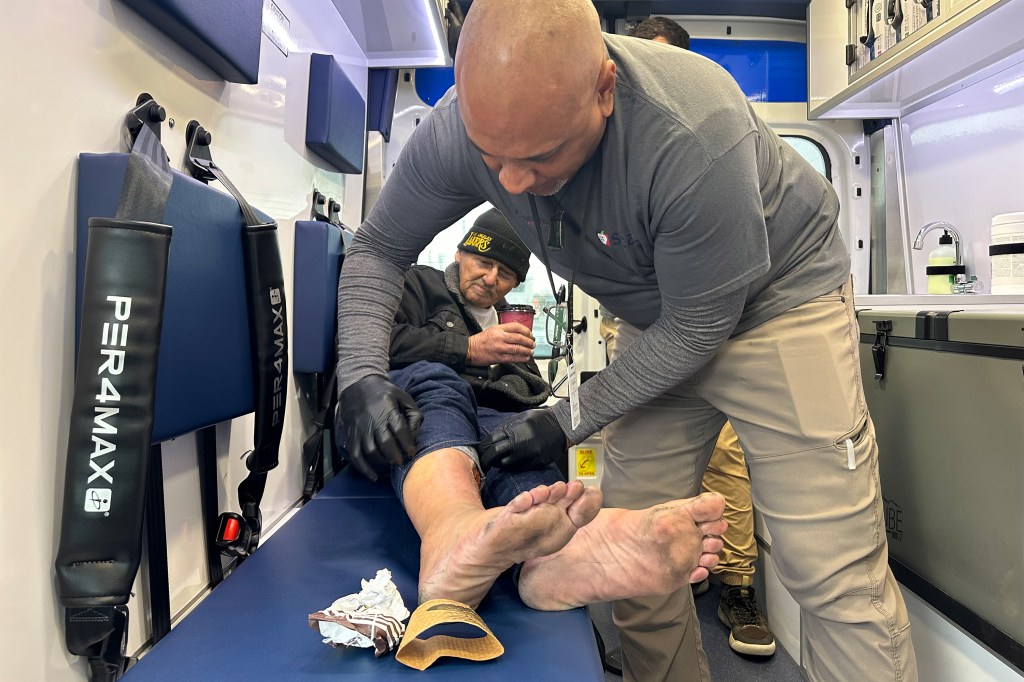—
“Lab leak” versus natural origin in the spotlight at hearing
by
Joyce Frieden,
Washington Editor, MedPage Today
June 18, 2024
Accusations flew from the dais to the witness table at a Senate hearing Tuesday as senators and witnesses debated the origins of SARS-CoV-2, the virus that causes COVID-19.
“The reason the American public legitimately doesn’t trust scientists and federal health agencies is because of people like you,” said Sen. Ron Johnson (R-Wisc.), a member of the Senate Committee on Homeland Security & Governmental Affairs, to Robert Garry Jr., PhD, associate dean of the Tulane University School of Medicine in New Orleans. “You bear that responsibility for violating the public’s trust from your scientific misconduct and fraud.”
Garry was a co-author of a letter published in Nature Medicine in March 2020 suggesting that SARS-CoV-2 likely occurred naturally — such as by transmission from one animal to an intermediary animal, and then to humans — rather than as a result of an accidental lab leak.
During Tuesday’s hearing, Garry testified that in the letter, often referred to as the “proximal origins” paper, “we didn’t put anything … that we didn’t believe was true. The conclusions of that paper have held up very well. In fact, there’s been an abundance of scientific evidence that has come forward since then to support all the conclusions, everything we wrote in that paper, so there’s no fraud.”
Another witness, Richard Ebright, PhD, laboratory director at Rutgers University’s Waksman Institute of Microbiology in Piscataway, New Jersey, also criticized the paper. “We know that compelling evidence has been presented as a result of congressional inquiry in the House that four of the authors of that paper [including Garry] in their private communications show clearly that they knew the conclusion that they stated in that article was invalid,” he said.
Ebright, a proponent of the “lab leak” theory, argued that researchers should “never, under any circumstances, in a scientific journal state conclusions that you know to be unsound. That represents scientific misconduct up to and including fraud, and the paper in question has been recommended for review of retraction.”
The witnesses and senators went back and forth about how the virus — which was first observed in the city of Wuhan in China — originated. “The wildlife trade in China was the only enterprise in the world comparable in size to the United States cattle industry,” said Garry. “Multiple spillovers of SARS-CoV, the first SARS, occurred in 2002 through 2004, and they came from the Chinese wildlife trade. Evidence similarly indicates that this likely happened again with SARS-CoV-2 in 2019.”
Not so, said Steven Quay, MD, PhD, CEO of Atossa Therapeutics and a former faculty member of the Stanford University School of Medicine in California. With COVID-19, “457 animals were tested in the [Wuhan] market. Zero were found to be infected.” That compares with SARS-1, “with 92 animals, 100% infected.”
In addition, “the wildlife vendors in SARS-1 were all infected,” said Quay. “We have 10 vendors here [in the Wuhan market]; none of them are infected.”
Sen. Mitt Romney (R-Utah) tried to take a conciliatory approach. “There’s a lot of energy and passion around ‘was it from an animal or was it a lab leak?’ and I must admit, I don’t understand why,” he said, noting that the answer will likely never be known. The fact that “there’s so much passion around it makes me think it’s more political than scientific.”
In any event, “it strikes me that, based on what I’ve heard, we shouldn’t be financing gain-of-function research,” he said. Generally, “gain-of-function” refers to research involving a genetic mutation in an organism, such as a virus, that confers a new or enhanced ability upon it. It is the type of research that is said to be performed at the Wuhan Institute of Virology.
But Garry defended gain-of-function research, arguing that in some cases it advances public health and national security. “Without gain-of-function research, we’d have no Tamiflu,” he said in his opening testimony. “Without gain-of-function research, we wouldn’t have a vaccine to prevent cancer caused by infection by the human papillomavirus, and without gain-of-function research, we won’t be able to identify how novel viruses infect us, and if we don’t know how they infect us, we cannot develop appropriate treatments and cures for the next potential pandemic-creating virus.”
Sen. Maggie Hassan (D-N.H.), the lone Democrat to attend the hearing besides Committee Chairman Sen. Gary Peters (D-Mich.), asked what could be done to more tightly regulate private research labs that don’t rely on government funding.
“The oversight of privately funded research is much less than that of federally funded research in terms of both biosafety, biosecurity, and ‘dual-use’ research oversight,” said Gregory Koblentz, PhD, director of the Biodefense Graduate Program at George Mason University in Fairfax, Virginia. (“Dual use” refers to research that could be used for either beneficial or harmful purposes.)
“What we’ve seen in the area of dual-use research oversight, for example, in the most recent policy that the Biden administration released only applies to federally funded research,” he said. “However, there is the ability for federal agencies to require their grant recipients to apply this policy to all research, including research that’s privately funded,” although it might require using special authorities only available to certain agencies.
Asked by Peters what the U.S. could do to prevent future outbreaks, the witnesses had a few ideas. Quay suggested establishing an independent review board that would operate outside of NIH to regulate certain types of research.
Ebright agreed with the idea of independent review, adding that “improvements in oversight need to be codified in law so they are enforceable with the rule of law. Voluntary self-regulation … [has] not worked and will not work in the future.”
![author['full_name']](https://clf1.medpagetoday.com/media/images/author/JoyceFrieden_188.jpg)
Joyce Frieden oversees MedPage Today’s Washington coverage, including stories about Congress, the White House, the Supreme Court, healthcare trade associations, and federal agencies. She has 35 years of experience covering health policy. Follow
Note: This article have been indexed to our site. We do not claim legitimacy, ownership or copyright of any of the content above. To see the article at original source Click Here













_1_0.jpeg)